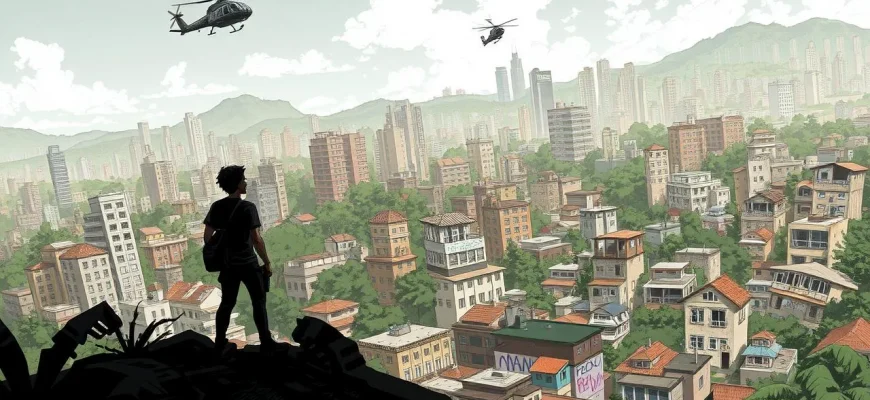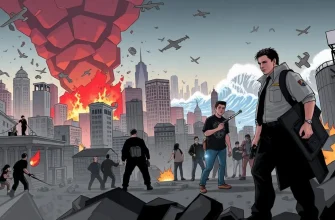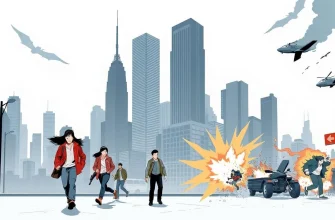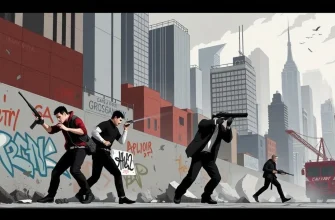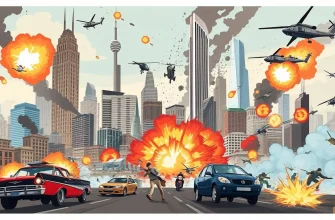The pulsating heart of urban Brazil, favelas, are not just neighborhoods but a symbol of resilience, struggle, and raw energy. These 10 action films delve into the gritty, often dangerous life within these communities, showcasing high-octane action, compelling stories, and the indomitable spirit of their inhabitants. From the adrenaline-fueled chases to the poignant tales of survival, these movies provide a unique window into a world where every corner holds a story, and every story is a battle for existence.

City of God (2002)
Description: This Brazilian masterpiece captures the rise of organized crime in Rio's favelas through the eyes of two young boys, one becoming a photographer and the other a drug lord. Its raw, unfiltered portrayal of life in the favelas makes it a must-watch for action enthusiasts.
Fact: The film was shot in the real Cidade de Deus favela, and many of the actors were non-professionals from the area. It was nominated for four Academy Awards.
 Watch Now
Watch Now 
The Incredible Hulk (2008)
Description: Although not entirely set in favelas, a memorable action sequence takes place in Rio's Rocinha favela, where Bruce Banner tries to evade capture, leading to an explosive confrontation.
Fact: The scene where Hulk jumps from building to building in the favela was one of the most challenging sequences to film due to the location's complexity.
 Watch Now
Watch Now 
Elite Squad (2007)
Description: Follow Captain Nascimento, a member of BOPE, Rio's elite police squad, as he battles corruption and drug trafficking in the favelas. This film is a gritty, intense look at law enforcement in one of the world's most dangerous environments.
Fact: The movie was initially banned in Brazil due to its controversial portrayal of police brutality, but it was later released and became a massive hit.
 Watch Now
Watch Now 
Waste Land (2010)
Description: While not a traditional action film, this documentary features intense moments as artist Vik Muniz works with garbage pickers from Rio's Jardim Gramacho landfill, showcasing the harsh realities of life in and around the favelas.
Fact: The film was nominated for an Academy Award for Best Documentary Feature.
 Watch Now
Watch Now 
Fast Five (2011)
Description: While not exclusively set in favelas, this installment of the Fast & Furious franchise features a significant portion of its action taking place in Rio's favelas, with high-speed chases and heists that showcase the area's unique landscape.
Fact: The film's climax, involving a massive vault being dragged through the streets, was inspired by a real-life event in Brazil.
 Watch Now
Watch Now 
The Way He Looks (2014)
Description: This coming-of-age story set in São Paulo includes scenes in the favelas, where the main character, a blind teenager, experiences life's challenges and small acts of rebellion.
Fact: The film was Brazil's submission for the Best Foreign Language Film at the 87th Academy Awards.
 Watch Now
Watch Now 
The Second Mother (2015)
Description: Although primarily a drama, this film includes scenes in São Paulo's favelas, where the protagonist's daughter navigates the complex social dynamics, leading to tense and action-packed moments.
Fact: It won the Audience Award at the Sundance Film Festival.
 Watch Now
Watch Now 
Rio 2096: A Story of Love and Fury (2013)
Description: This animated film spans centuries, with one segment set in a futuristic Rio where favelas have become high-tech fortresses. It blends action with a love story, exploring themes of resistance and survival.
Fact: The film was Brazil's submission for the Best Foreign Language Film at the 86th Academy Awards.
 30 Days Free
30 Days Free 
The Mechanism (2018)
Description: This series, while not a film, features intense action sequences in Brazil's favelas as it follows a fictionalized account of the investigation into the Petrobras scandal.
Fact: Created by José Padilha, the director of "Elite Squad," it offers a gritty look at corruption and crime in Brazil.
 30 Days Free
30 Days Free 
The Elite Squad 2 (2010)
Description: The sequel to "Elite Squad," this film continues the story of Captain Nascimento, now dealing with corruption at higher levels of government and the ongoing battle in the favelas.
Fact: It became the highest-grossing Brazilian film of all time, surpassing its predecessor.
 30 Days Free
30 Days Free 
